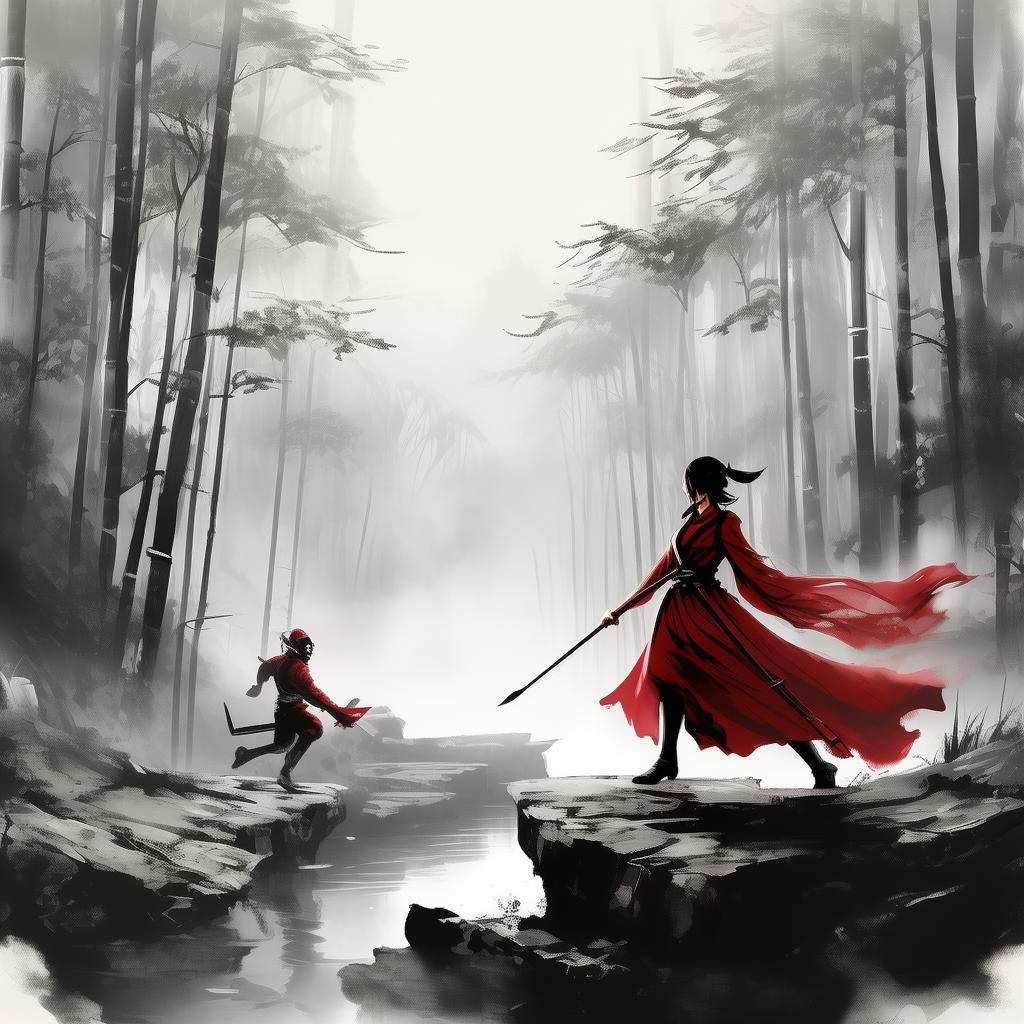The Heart's Revolution: A Martial Artist's Quest for Equality
In the ancient, mystical land of Wu, where the mountains loomed like guardians and the rivers whispered tales of the ancients, there lived a martial artist named Hong. Hong was no ordinary fighter; he was a master of the ancient art of Kung Fu, a man whose skills were the envy of all who beheld them. But his heart was set not on glory or fame, but on a quest that would shake the very foundations of the martial arts world.
Hong had spent his life training, learning from the great masters, and mastering the ancient forms. Yet, despite his prowess, he felt a void in his life. It was not until he witnessed the inequality within his own community that his quest truly began. The martial arts, meant to be a way of life that balanced the body and mind, were marred by a hierarchical system that favored those of high birth and wealth, leaving those of humble origins with few opportunities to advance.
The martial arts schools were divided, with the more prestigious schools teaching only to those who could pay, while the lesser-known schools struggled to survive. Hong knew that this was not the way of the martial arts as intended by the ancient sages. He was determined to change that.
Hong's first act of rebellion came when he opened a new school, The Heart's Revolution. This school was free to all who desired to learn, regardless of their background. He taught the young and the old, the rich and the poor, with the same dedication and compassion. His message was simple: true mastery is not about the rank you hold or the weapons you wield, but about the strength of character and the harmony you bring to the world.

Word of The Heart's Revolution spread quickly, and soon students were flocking from all corners of Wu. The elite martial artists of the older schools were not pleased. They saw Hong as a threat, a man who would undermine their power and status. The headmaster of the most prestigious school, Master Li, was especially incensed. He believed that Hong's teachings were a dangerous heresy that would lead to chaos.
The conflict came to a head at the annual martial arts tournament, where Hong's students were scheduled to compete. Master Li, in a move that would shock the martial arts world, banned Hong's students from participating, citing their unconventional training methods. Hong, undeterred, took his students to the tournament grounds, where he announced to the assembled masters and students that they would compete despite the ban.
The tournament was fierce, with Hong's students facing off against some of the most formidable martial artists in Wu. Each match was a battle of not just physical skill but also of Hong's revolutionary spirit. His students, fueled by Hong's passion and ideals, were able to overcome their opponents, even those who were more skilled and experienced.
Master Li watched in growing alarm as Hong's students won match after match. He realized that Hong's message had touched a nerve within the community. The martial artists who had once looked down on Hong were now beginning to question their own beliefs. The revolution was gaining momentum.
As the final match approached, Hong stood on the battlefield, facing Master Li. The crowd held its breath, knowing that this was the moment when the future of martial arts in Wu would be decided. Hong, with a calm and resolute gaze, squared off against his nemesis.
The battle was a showcase of the true essence of martial arts. Hong fought not with the intention of winning, but with the goal of enlightening those who watched. His movements were fluid and graceful, each strike a lesson in balance and harmony. Master Li, caught in Hong's unyielding spirit, began to understand the error of his ways.
In the end, it was not a physical victory that Hong sought, but a spiritual one. Master Li, humbled by Hong's compassion and wisdom, realized the error of his ways and agreed to support Hong's teachings. The revolution had succeeded, not through force, but through the power of Hong's heart and his unyielding belief in the equality of all martial artists.
The Heart's Revolution continued to spread throughout Wu, challenging the old order and bringing a new light to the martial arts. Hong, now recognized as a visionary and a true master, continued to train and teach, knowing that his quest for equality was far from over, but that he had taken the first, monumental step.
✨ Original Statement ✨
All articles published on this website (including but not limited to text, images, videos, and other content) are original or authorized for reposting and are protected by relevant laws. Without the explicit written permission of this website, no individual or organization may copy, modify, repost, or use the content for commercial purposes.
If you need to quote or cooperate, please contact this site for authorization. We reserve the right to pursue legal responsibility for any unauthorized use.
Hereby declared.









